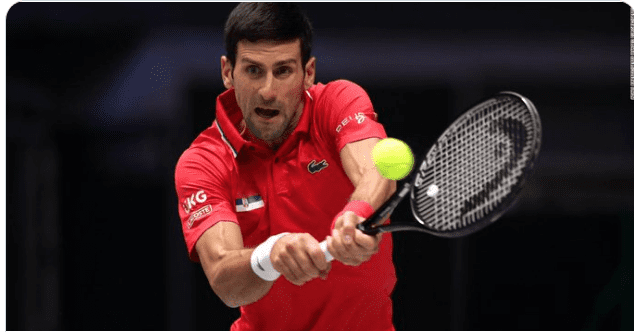Last updated on January 31st, 2022 at 10:19 am
[ad_1]
Novak Djokovic awoke to his first morning free of immigration detention in Australia on Tuesday (January 11), over a week after flying into the country — and into an international uproar over his COVID-19 vaccination status. Despite a court judgment on Monday quashing the government’s earlier decision to cancel his visa, the world number one now faces the prospect of being detained by the federal government for a second time and deported.
Djokovic returned to training hours after winning the court battle, thanking the judge who had released him from immigration detention and stating he was still focused on winning a record 21st tennis major at the Australian Open next week.
“I am thrilled and grateful that the judge overturned my visa cancellation,” Djokovic wrote on Twitter after a tumultuous few days, posting a snapshot of himself on the court at Melbourne Park. “Despite all that has occurred, I intend to stay and compete in the Australian Open.”
Djokovic’s struggle received international attention, sparking a political feud between Canberra and Belgrade and igniting concerns about mandatory COVID-19 vaccination programs. Former professional tennis player John Alexander, a member of the coalition government’s Liberal Party, said it would be a mistake for Immigration Minister Alex Hawke to utilize his discretionary powers to deport the Serbian player now.
According to Alexander, doing so would ‘diminish’ the Australian Open’s status. He explained, “Previously, we had been the poor relative of the four events.” “We have a lot going for us, but we have to be careful with it.”
Hawke’s office said late Monday that the minister was still debating whether to use his authority under the Migration Act to revoke Djokovic’s visa a second time. On Tuesday, the minister’s spokespeople did not immediately respond to calls requesting comment.
The ATP, the men’s tennis governing body, praised the court’s decision, saying the dispute had been “damaging on all fronts,” including for Novak’s health and preparation for the Australian Open.
The ATP backed Australia’s strict vaccination laws but said that the situation underscored the need for better knowledge and communication of the guidelines. It stated that all players should be immunized and that 97 percent of the top 100 players were inoculated.
The decision of the Court
Judge Anthony Kelly said the decision to bar Djokovic’s entry was overturned because the player was not given enough time to respond. Officials at Melbourne’s airport, where Djokovic was kept after arriving late on Wednesday, had broken a promise to give him until 8:30 a.m. to consult with Tennis Australia and lawyers, according to Kelly.
According to a transcript of the encounter, Djokovic, who has long opposed obligatory vaccination, informed border agents he was unvaccinated and had contracted COVID-19 twice. Kelly told the court that it appeared Djokovic had secured a medical exemption from the COVID-19 vaccine after contracting the virus last month and presenting evidence of infection before traveling and upon arrival.
Kelly’s decision did not directly address the government’s contention that the exemption based on an illness during the previous six months was valid.
Australian Open is a tournament held in Australia.
On January 17, the Australian Open will begin. Djokovic has won the tournament for the past three years and nine times overall, making it one of tennis’ four Grand Slams.
Rafa Nadal of Spain, who is tied for 20 majors with Djokovic and Roger Federer of Switzerland, described the tense build-up to the tournament as a ‘circus.’ “Justice has spoken and said that he has the right to compete in the Australian Open,” Nadal told Spanish radio station Onda Cero.
Renata Voracova, a Czech player who left Australia after her visa was similarly revoked, told Reuters she was pleased with the decision to allow him to stay: “I’m hoping he’ll be able to play.” Because that’s why we got there in the first place: to play tennis without taking part in any indoor events.”
Pam Shriver, a former American player turned pundit, warned on Twitter that the debate might not be over: “The booing will be deafening if he plays.”
[ad_2]




